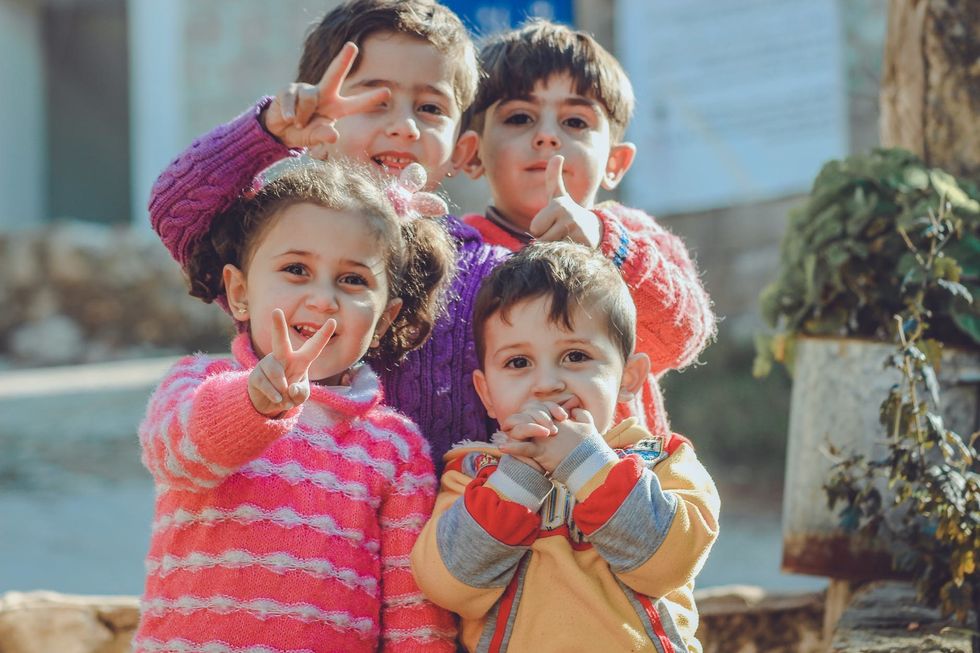I started my part-time job as a reading tutor in June of 2018 at Kumon. Before I took up the position, being around children was the last thing I enjoyed doing. I had never been good with children but hoped that this experience would change something, especially since I would be teaching a subject I had loved since the second grade—English. During training, I had limited talk time with the kids because I had to focus on learning how to grade, record, maintain the front and explain how to answer certain questions to the older kids.
Eventually, I started teaching on my own. Whenever a child came up to me to turn in their folder and homework or get their classwork, I always asked them the same question: "how was your day?" It didn't seem that big of a deal. After all, it was something that just naturally came out of my mouth because I had been conditioned to ask that question to anyone I met. We've all been conditioned to ask that question in greetings. "Hello. How was your day?" or "Hey there, how are you?"
Let's be real here for a second. Do you actually care about how that person's day went? Do you really pay attention to what that person is saying when they begin to explain how their day went? For most people, the answer would be no. Ears immediately shut off and heads begin to blindly nod. People pretend to listen, but they don't really.
I too have been a victim of such circumstance, but I didn't realize it until two months into my new job. At Kumon, we have kids of all age ranges studying under us. From Pre-Kindergarten to 12th grade, we see students of all sorts; these students have all sorts of stories to tell us, but they never really do. I never discriminate in my "how was your day?" question, no matter how old the student is, and what I discovered was shocking.
Elementary school children would eagerly tell me everything they have done that day. From what they ate to breakfast to the last thing their mom told them on the car ride to Kumon, they spend a solid five minutes telling me exactly what they did, what they enjoyed about their day and what they didn't. Sometimes they get so excited about the smallest things, they don't realize how much rambling they are doing. I never minded how much they talked. Eventually, I would make a few small remarks in reference to some of the things they told me and send them off to do their classwork.
Middle school students were a different story. Like I said before, I never discriminate with my questions. But I could definitely see a difference in their answers. Replies went down from long-winded explanations to simple two-sentence answers.
"Hey bud, how was your day?"
"It was okay. I ate ice-cream before coming here."
That's it. Nowadays, I follow up with questions like "Oh cool, what kind of ice-cream?" or "Really? Were you celebrating something?" Just to push the conversation forward.
Why?
Because, later I realized that with older high school students, it became worse. Their responses were just one words: "Good" or "Fine." I didn't think of it much in the beginning, but it began to irk me. Why didn't they dive into longer explanations or talk about things that happened during their day? I pondered about it for weeks before realizing why.
During middle school, kids are going through puberty; it's a really difficult time in a child's life because, not only are they undergoing biological changes, they are undergoing identity changes. It's a time a kid's life where they are expected to act like an adult but still treated like a child. They are confused about what to do, how to act and who to talk to. Their self-esteem hits an all-time low; that's just how puberty is.
It comes to a point where they feel unheard and treat themselves as such so when someone asks them that question, they think that their day does not matter to the other person. Then their robotic answers just become routine, way into high school and past.
"It was good."
"It was fine."
"Pretty okay."
That's it. Nothing else.
Now, whenever I talk to the older kids, I ask more questions while pulling out their classwork. Simple questions like "Anything special happen?" or "What did you do over the weekend?" and try to push the conversation from there. While the questions may seem unnecessary or prying, it's just a way for them to become more comfortable talking with their teachers so they know there is someone listening to them, even if it's just about the latest movie they watched.
Every kid deserves to be listened to so don't let them fall into a rut for the rest of their life. Have them realize that they're being listened to. Sometimes what seems insignificant, at the time, will have a significant impact in the long run. Next time you're talking to a kid, be sure to take the time to ask them how their day was because the question we all take so much for granted will have a huge impact on the future of that child.











 Photo by
Photo by  Photo by
Photo by  Photo by
Photo by 










